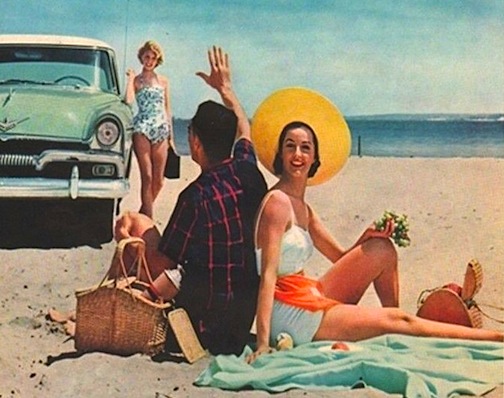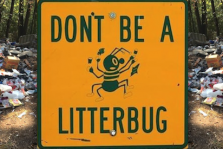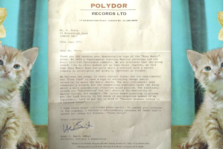‘Holiday-maker’ is a stupid expression because it uses the wrong verb, argues Tony Barrell
MARCH 2018
Isn’t “holiday-maker” a silly phrase? It was invented centuries ago, and eminent writers including Charles Dickens have used it, so I’m surprised that nobody seems to have noticed how flawed it is. Most of us know what “holiday-maker” means: a human being who takes a break somewhere away from home. But when you do that, you “take” or “have” a holiday, or “go on” holiday, don’t you? You don’t “make” one.

“Holiday-maker” really ought to have a different meaning. Consider Len and Ethel, who decided on the spur of the moment to visit Blackpool in the middle of May. They were taking a serious risk with the weather, which can be variable in the Lancashire resort at that time of year. But guess what: the sun shone brightly for each of the six days they stayed there, which they mostly spent plodding around on the town’s famous Pleasure Beach, lightly clad and getting redder by the minute. “The weather made our holiday,” Len told his next-door neighbour Stan when he returned home to Basingstoke. So something that “makes” a holiday in this sense ought to be the holiday-maker – not Len or Ethel, who were more accurately holiday-takers or holiday-goers.
When people go to the cinema, they’re not called cinema-makers
Len and Ethel often go to their local cinema at the weekend. Len loves a western and Ethel can’t get enough romcoms. And when people go to the cinema, they’re often quite rightly called “cinema-goers” – not “cinema-makers”, which are something else entirely. Cinema-makers are people like Steven Spielberg and Orson Welles, who have actually made films rather than just watching them. Holiday-makers, then, could similarly be people who devise or arrange holidays, as Thomas Cook do.
Of course, many Americans get round the whole linguistic lunacy of “holiday-making” by “vacationing” instead. And now we have the neologism “staycation”, meaning to take time off work but remain at home (originally), so you can be a “staycationer” as well if you like. The term “staycation” was coined by the Canadian comedy writer Brent Butt for a laugh in 2005, but people have begun to take it seriously. Many now use it to describe a holiday in which you visit sites close to your home.
Whoever coined the stupid phrase “holiday-maker” went up to the big sunkissed resort in the sky a long time ago, and their identity has been swept away to sea. It’s a shame, because I would have liked to meet them – and land a haymaker on them for their foolishness. ♦
© 2018 Tony Barrell
Tony Barrell is a writer, pop historian and etymologist who has investigated other popular phrases, such as “hunky dory” , “hanky panky“, “toy boy“, “Planet Zog“, without further ado, and “laughing all the way to the bank”. He is currently on holiday.










0 comments found
Comments for: GIVE ME A BREAK